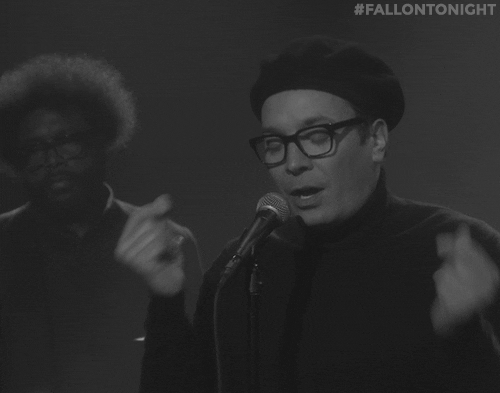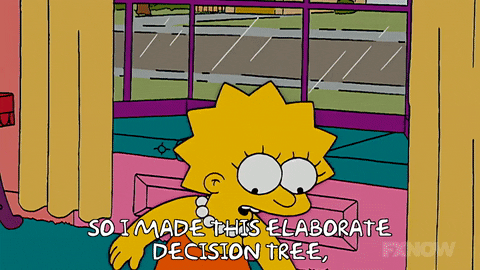More is less; The FIFA product; Lagging indicators; Web3 framing; Ambush of the Week; Twitter ye not; Larkin on sports marketing; Happy paths and edge cases; Audio first; Failure, a user’s guide
Overthinking the sports business, for money
‘Excuses that make them all needs’
When discussing innovation in sport, the second sentence often starts with ‘More’.
More games, more races (did I hear that Liberty plans 6 US Grand Prix btw?), more teams, more events, more money; each new initiative presented as necessity. (HT Philip Larkin)
Most things are never meant.
This won't be, most likely; but greeds
And garbage are too thick-strewn
To be swept up now, or invent
Excuses that make them all needs.
I just think it will happen, soon.
From: Going, Going. Philip Larkin
As a strategy, ‘More’ is relatively easy compared to the heavy lifting of structural reform or genuine product innovation.
But more has obvious consequences.
On this week’s podcast PFA CEO Maheta Molango and former FIFA Marketing Director Adam Paker (now Portas) wondered about the impact of more, on players, the product and the commercial value of football.
Three scenarios present themselves:
A boring World Cup: the national team product degrades over time (players turn up tired, injured or apathetic).
The club/league product bears the brunt: The counterpoint to 1) was made by Molango: the players will run in to Qatar fitter than usual for a summer event; the season as pre-season. But the players may go back to their employers knackered and broken.
The career of a pro footballer shortens rapidly, from its current average duration of 8 years.
My money’s on 2 and 3, fwiw.
But the above conversation poses a good question.
Will the commercial rights market punish the rights holder if the sporting product fails? (Spoiler: No).
The rights market is just too blunt an instrument. The deals have been done: FIFA is protected by the lag created by media rights terms.
So, the Qatar World Cup can be crap and it won’t make a difference to FIFA’s bottom line.
For myriad reasons, 2026 in US, Canada, Mexico will bring in a shedload of cash, and Qatar will be something we forget ever happened, like a Zoom pub quiz or that afternoon Spurs were in the Super League.
Happy paths and edge cases
Software programmers use the term happy path.
It describes the causal links required for a project to achieve its best possible outcome.
If this, then that.
The sports economy is largely based on people - marketers, media owners, politicians - buying in to optimistic happy path scenarios.
For example, the hosting of a major sports event has an implied causal pathway that jumps from heightened media interest, commercial success of a governing body through to grass roots participation growth and finally a healthier nation.
That’s a lot of links in the chain; much has to go right.
But that’s the difference between real life and UX.
Something good is probably happening fails the software debug test, but is closer to reality.
Coders can’t tolerate fudge - not a bad name for a podcast btw - but sport relies on it.
Edge cases and dissecting failure:
Failure is far more interesting than success, I suspect because it allows us to project on to it with more empathy.
Beneath the Insta-Linkedin version of ourselves we present to the world, we know failure intimately.
With failure comes shame (it shouldn’t but it does).
And shame is what we often fear most, both personal and corporate.
So rather than staying in the problem, failure is covered up, or PR’d away: nothing to see here-objectives have shifted-accentuate the positives blah blah blah.
This is a problem, because proper analysis of failure is useful, and probably healthy.
When I read a news story about the Shell-British Cycling sponsorship snafu, or a.nother OTT channel launch/closure, I often ask: what were they thinking?
Not in a facetious, piss-taking way, but I want to know the initial plan for the project, the hoped-for happy path scenario.
What were causal links that needed to go right? How were those links interrogated? Quant or Qual?
Sometimes, I suspect that the people investing in a project - financially, emotionally, politically - don’t actually know the odds they’re betting on.
Are you betting on an edge case?
In UX speak, an edge case is a type of software bug that won't be a widespread issue. It affects a small number of users, and devices, or can only be reproduced under uncommon circumstances.
But again, UX design isn’t real life.
In reality, edge cases reveal our prejudices and talk to diversity of experience and culture.
Here’s a great thread developing this topic:

Twitter ye not?
I used to love Twitter.
It’s been a while since that’s been true.
It’s still incredibly useful as a real time intel gatherer.
Unmatched in that regard.
But…Musk, and what that means.
See also: Twitter as Game (Musk liked this thread btw)

Audio first
For obvious reasons, we obsess over how UP podcasts land when they venture out in the world.
Some go hot quickly, others slow burn.
Either way, the social media noise around a particular guest or episode seems to have little impact on the final listener numbers.
We’re fortunate that the total community of listeners has grown steadily over the course of the last 276 episodes.
As people find us they venture back in to the archive, which is relatively evergreen because we’ve avoided news and built the inventory around themes and threads.
“So, why aren’t you on TikTok, Reels or doing video shorts across Linkedin and YouTube?”
It’s a question we get a lot, as if it’s the inevitable next step in the journey.
Our answer is, we don’t want to.
We’ve put our faith in audio as the medium.
It’s what we’re good at and what we enjoy doing. Those two things are linked imho.
Events - small invite only networking evenings or big ticket brainstorms - are a natural accompaniment.
By contrast video is a needy child, constantly demanding attention.
So let’s not do that.
Maslow’s theory of sports marketing?
Fashionable framing - Web3’s Winter of Discontent
There’s discernible glee in the reporting of the crypto winter.
Sandy Case makes a good point about the wonky numbers in this Front Office report in to the Premier League’s recent Sorare deal.
Read main stream media and the dialogue around crypto and NFT remains constantly negative and it feels as though it's repeated today with most headlines quoting the full $459m contract price (obviously over multiple years) that ConsenSys was reported to have won being replaced by a deal always quoted as £30m (obviously per year). It's as if they want to reinforce the negativity that exists in this space. Of course there are negatives out there but it's not just Crypto/NFT as there is a wider global tech crash - Amazon down 50%, Tesla 45%, Facebook 70%, Microsoft 30% , Apple 25%, Netflix 60% (apprx prices) etc etc.
See also: Lost in the Metaverse, via adcontrarian’s Bob Hoffman - kicker final para.
Z-bag had another rough week. Financial results for adtech companies came rolling in and indicated an end to the social media ad boom. And, as usual, Facebook was the headline story.
Facebook's parent company, Meta, reported that its profits were down over 50% from the same period last year. Its stock immediately tanked another 23%. This means that since the Zman went all Meta, the value of his company has dropped over 70%.
A bigshot at Altimeter Capital, that owns over $300 million in Meta stock, had some harsh words. According to Insider, "He accuses Meta of drifting 'Into the land of excess' with 'too many people, too many ideas, too little urgency.' ...the company's focus on the metaverse had distracted it from focusing on its core business, which ...generates profit."
Ambush of the Week - Expedia
A theme is emerging from the early Qatar World Cup ambush ads.
Flags, falcons and the reddish purple hue of the host nation’s emblem.
HT Ricardo Fort for the steer.
See previous, World Cup Ambushing in 7 Gifs
See also, it’d be cheaper to buy an official FIFA deal than foot the total bill for Bloomberg’s Six Places to Eat in Qatar.
Oh So Quiet: M&C Saatchi’s Neil Hopkins mixes Bjork with opportunity cost decision making in this piece on why there’s so little activation around the World Cup.
Sportsbiz Job of the Week
The Job: Social Media Specialist - Two Circles
The Blurb: Two Circles are on the lookout for a social media specialist who can help continue the growth of one of their major client’s global channels. You are a social media expert with a deep understanding of how the platforms work and what makes audiences tick. You are comfortable working alongside a team of social media experts, crafting the perfect posts that will entertain, educate and inform across global channels of 100m+, for one of the most recognisable sports rights holders in the world.
The Link: Tell them UP sent you.
Unofficial Partner partners Streaming For Sport
We’re so happy to support this initiative. Get in touch if you’d like to know more.










